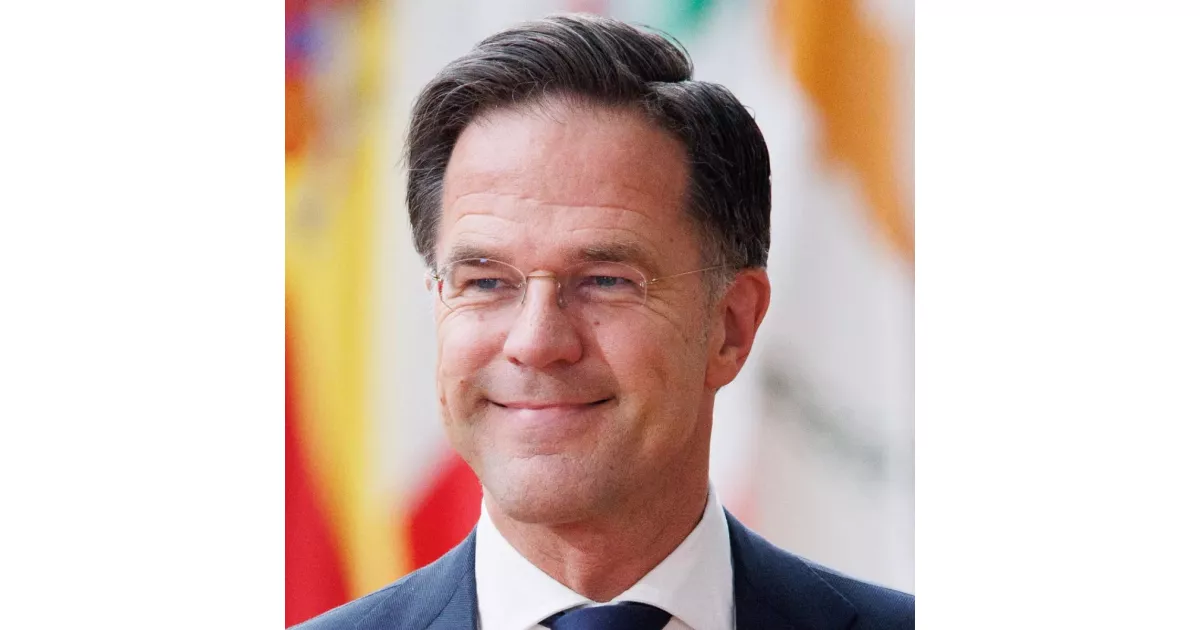Discover the career path of Mark Rutte, from the first major opportunity to industry-changing achievements.
Mark Rutte is a Dutch politician and the current Secretary General of NATO (since October 2024). He was the Prime Minister of the Netherlands from 2010 to 2024, making him the longest-serving prime minister in Dutch history. Rutte also led the People's Party for Freedom and Democracy (VVD) from 2006 to 2023. His political career is marked by a long tenure as a national leader and now by his role in international diplomacy and security.
1988: Joined Youth Organisation Freedom and Democracy
In 1988, Rutte joined the board of the Youth Organisation Freedom and Democracy, the youth organisation of the VVD.
1991: Served as Chair of Youth Organisation Freedom and Democracy
From 1988 to 1991, Rutte served as chair of the Youth Organisation Freedom and Democracy.
1992: Obtained MA Degree
In 1992, Rutte obtained an MA degree in history from Leiden University.
1993: Began Membership of the National Board of VVD
Between 1993 and 1997, Rutte was a member of the national board of the VVD.
1997: Ended Membership of the National Board of VVD
Between 1993 and 1997, Rutte was a member of the national board of the VVD.
1997: Became Staff Manager at Van den Bergh Nederland
Between 1997 and 2000, Rutte was staff manager of the Unilever subsidiary Van den Bergh Nederland.
2000: Joined Corporate Human Resources Group
In 2000, Rutte became a member of the Corporate Human Resources Group at Unilever.
July 2002: Appointed State Secretary
On July 22, 2002, Rutte was appointed State Secretary at the Social Affairs and Employment Ministry in the First Balkenende cabinet.
2002: Entered National Politics
In 2002, Mark Rutte entered national politics as a member of Jan Peter Balkenende's cabinet.
2002: Became Human Resource Manager for IgloMora Groep
In 2002, Rutte became human resource manager for IgloMora Groep, a subsidiary of Unilever.
May 2003: Member of the House of Representatives
From January 30 to May 27, 2003, Rutte was briefly a member of the House of Representatives.
June 2004: Appointed State Secretary for Higher Education and Science
On June 17, 2004, Rutte was appointed as State Secretary for Higher Education and Science in the Second Balkenende Cabinet.
June 2004: End of Term as State Secretary
On June 17, 2004, Rutte's term as State Secretary at the Social Affairs and Employment Ministry concluded.
May 2006: Elected as VVD Lead Candidate
On May 31, 2006, Mark Rutte was announced as the next lijsttrekker of the VVD, elected by 51.5% of party members.
June 2006: Resigned from Government
In June 2006, Rutte resigned from his position in government to return to the House of Representatives and became the parliamentary leader of the VVD.
2006: Won VVD Leadership Election
In 2006, Mark Rutte won the VVD leadership election.
2006: VVD Campaign
In 2006, The VVD campaign with Rutte as leader did not get off to a good start.
September 2007: Expelled Rita Verdonk
On September 13, 2007, after repeated criticisms by Verdonk on VVD policy, Rutte expelled her from the party's parliamentary faction.
October 2010: Appointed as Formateur and Prime Minister
In October 2010, Rutte was appointed as formateur on October 8 and then formally invited to form a government on October 14. He was sworn in as Prime Minister of the Netherlands, becoming the first Liberal to serve in the role since 1918.
2010: Became Prime Minister of the Netherlands
In 2010, Mark Rutte became the prime minister of the Netherlands after his party, the VVD, won the general election.
2010: VVD Won General Election
In the 2010 general election, the VVD won 31 seats and became the largest party in the House of Representatives, with Rutte as the lead candidate.
2011: VVD Secured Status
After a victory in the 2011 provincial elections, the VVD secured its status as the lead party within the government.
March 2012: Began Budget Talks
In March 2012, Rutte began talks with his coalition partners on a budget to cut 16 billion euros of government spending, in order to comply with requirements from the European Union to reduce the nation's deficit.
April 2012: Government Collapsed
In April 2012, the Dutch government collapsed due to an impasse on budget negotiations.
November 2012: Returned as Prime Minister
On November 5, 2012, Rutte returned as prime minister of the Second Rutte cabinet after the VVD negotiated a coalition agreement with the Labour Party.
2014: The Hague Hosted G7 Meeting
In 2014, The Hague hosted a Group of Seven special meeting after the Malaysia Airlines Flight 17 was shot down in Ukraine with 193 Dutch nationals aboard.
April 2016: Appointed to High-Level Panel on Water
In April 2016, Rutte was appointed by United Nations Secretary-General Ban Ki-moon and President of the World Bank Group Jim Yong Kim to the High-Level Panel on Water.
October 2017: Rutte Sworn in as Prime Minister for Third Term
In October 2017, Rutte presented his third cabinet, a grand coalition with CDA, D66, and CU, and was sworn in as prime minister for a third term. The period of 225 days between the general election and the installation of the third Rutte cabinet marked the longest such period in Dutch history.
2017: VVD Remained Largest Party
In 2017, despite losing seats in the general election, the VVD remained the largest party.
2019: VVD Suffered a Blow Following the Victory of FvD
At the 2019 provincial elections, Rutte's VVD suffered a blow following the victory of right-wing populist newcomer Forum for Democracy (FvD).
2020: Rutte as Unofficial Leader of the Frugal Four
During the 2020 negotiations for the COVID-19 recovery fund in the European Union, Rutte was considered the unofficial leader of the Frugal Four, demanding loans instead of grants and more conditions on them. In September of that year, Rutte suggested that the EU could be dissolved and re-formed without Poland and Hungary, as he perceived these countries' governments to be dismantling the rule of law.
January 2021: Third Rutte Cabinet Resigned
On 15 January 2021, the third Rutte cabinet collectively resigned after the publication of research centered around the childcare subsidies scandal in the Netherlands. Rutte offered his resignation to King Willem-Alexander, accepting responsibility for the scandal.
December 2021: Rutte Presented a New Coalition Agreement
In December 2021, following the Dutch general election, Rutte presented a coalition agreement with D66, CDA and CU, the same combination as his previous government, on 15 December 2021.
2021: VVD Won General Election
In 2021, despite the Dutch childcare benefits scandal and the resignation of Rutte's cabinet, the VVD won the general election.
2022: Began Fourth Term
In 2022, after another record-length formation period, Rutte began his fourth term as prime minister.
January 2023: Agreement to Limit Chip Exports to China
In January 2023, the U.S., Japan, and the Netherlands reached an agreement to limit certain advanced chip exports to China.
March 2023: Dutch Government Placed Restrictions on Chip Exports
In March 2023, the Dutch government placed restrictions on chip exports in order to protect national security. This measure affected the Dutch multinational ASML, one of the most important companies in the global microchip supply chain.
July 2023: Rutte Offered the Resignation of his Government
On 7 July 2023, after failing to reach an agreement on immigration policy, the parties in Rutte's four-party coalition decided they could not continue working together. Following this, Rutte immediately offered the resignation of his government. Three days later, Rutte announced his departure both as political leader of the VVD and from national politics in general, after the installation of the next government.
July 2023: Government Resigned Over Migration Policy
On July 7, 2023, Rutte's government resigned after failing to agree on how to handle migration.
October 2023: Rutte Announced his Candidacy for Secretary General of NATO
In October 2023, Rutte announced his candidacy for the position of Secretary General of NATO.
November 2023: Early General Elections Held
Due to the resignation of the cabinet, general elections were held early, on 22 November 2023, with the VVD now under the leadership of Dilan Yeşilgöz.
2023: Stepped down as Leader of the People's Party for Freedom and Democracy (VVD)
In 2023, Mark Rutte stepped down as the leader of the People's Party for Freedom and Democracy (VVD).
2023: Rutte Condemned the October 7 Attacks and Expressed Support for Israel
In 2023, while serving as outgoing prime minister, Rutte condemned the October 7 attacks and expressed his support to Israel and its right to self-defense. Notably, he was the first foreign leader to speak with Israeli prime minister Benjamin Netanyahu on that day. Later that same month he visited Israel to express solidarity with the country, meeting with Netanyahu in Jerusalem. He rejected calls for a ceasefire in the Gaza war but supported "humanitarian pauses" to provide aid to civilians in the Gaza Strip.
January 2024: Further Restrictions on Chip-Making Equipment Shipments to China
In January 2024, the Dutch government placed further restrictions on the shipment of some advanced chip-making equipment to China.
February 2024: Court ordered the Dutch government to stop exporting parts for F-35 fighter jets to Israel
In February 2024 a court in the Netherlands ordered the Dutch government to stop exporting parts for F-35 fighter jets to the country.
February 2024: Rutte's Diplomatic Engagements in February 2024
In February 2024, Rutte visited Saudi Arabia and spoke with the Saudi crown prince Mohammed bin Salman about "broad cooperation". He would travel to Paris on 26 February, where Emmanuel Macron was hosting an emergency summit concerning the situation in Ukraine, which had suffered the loss of Avdiivka due to a lack of available ammunition. Czech PM Petr Fiala proposed to purchase 500,000 rounds of artillery ammunition for Volodymyr Zelensky's forces. On behalf of his government, Rutte announced that they would provide €100 million for this purpose.
February 2024: Rutte's Bid for NATO Secretary General Received Public Support
In February 2024, Rutte's bid to become Secretary General of NATO received public support from the governments of the United States, the United Kingdom, Germany, and France.
March 2024: Xi Jinping told Rutte no force can stop China's technological progress
On March 27, 2024, Chinese president Xi Jinping told Rutte that "no force can stop the pace of China’s scientific and technological progress".
April 2024: Rutte Condemned Iranian Strikes and Called for Sanctions
On 14 April 2024, Rutte condemned the Iranian strikes against Israel and reiterated the necessity for sanctions against Iran. Rutte stated that Iran's Islamic Revolutionary Guards Corps (IRGC) should be added to the EU's terrorism blacklist.
June 2024: Rutte on Ukraine Peace Summit and Putin's Proposal
In June 2024, Rutte attended the Ukraine peace summit, interpreting Putin's proposal for peace talks near the end of this summit as a sign of panic.
June 2024: Iohannis Drops Out
In June 2024, Rutte's only opponent, Romanian president Klaus Iohannis, dropped out of the race for Secretary General of NATO a week before Rutte's official appointment on 26 June 2024.
July 2024: Schoof cabinet sworn in
On July 2, 2024, the Schoof cabinet was sworn in, replacing Rutte IV.
October 2024: Appointed Secretary General of NATO
In October 2024, Mark Rutte became the 14th Secretary General of NATO.
October 2024: Rutte Succeeded Jens Stoltenberg as Secretary General of NATO
On 1 October 2024, Rutte succeeded Jens Stoltenberg as Secretary General of NATO during a ceremonial handover at the NATO Headquarters in Brussels.
March 2025: Rutte on NATO Membership for Ukraine
In March 2025, following the new Trump administration's announcement that it does not support NATO membership for Ukraine, Rutte stated that Ukraine had never been promised NATO membership as part of a peace agreement. and that Europe and the US should eventually normalise relations with Russia after a peace agreement.
June 2025: Rutte Voiced Support for US Strikes on Iranian Nuclear Sites
In June 2025, Rutte voiced support for US strikes on Iranian nuclear sites: in a private message published by Trump, Rutte praised and thanked the latter for his "decisive action" in Iran, calling it "truly extraordinary and something no one else dared to do."
Mentioned in this timeline
Ukraine is a country in Eastern Europe the second-largest on...
The United States of America is a federal republic located...
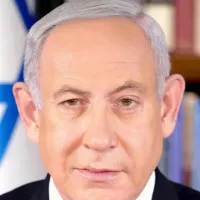
Benjamin Bibi Netanyahu is a prominent Israeli politician and diplomat...
Saudi Arabia officially the Kingdom of Saudi Arabia KSA is...
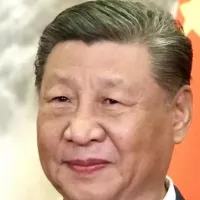
Xi Jinping is the paramount leader of China holding the...
Germany officially the Federal Republic of Germany is a nation...
Trending
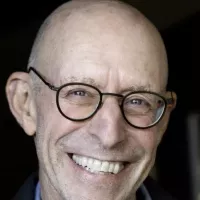
57 minutes ago Michael Pollan Explores AI and Consciousness in New Book and Discussions
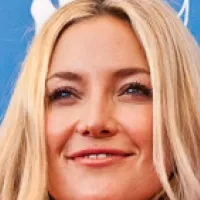
57 minutes ago Kate Hudson wants Goldie Hawn as her Oscar date; reveals career regret.
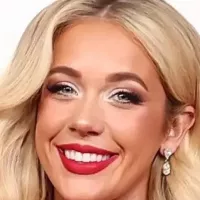
57 minutes ago Megan Moroney Concert in Richmond, New Song 'Wedding Dress', and 'Cloud 9' Title.
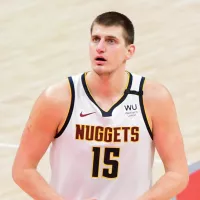
57 minutes ago Nikola Jokic Denies Retirement, Prioritizes NBA, and Addresses Careless Narrative Allegations.

2 hours ago Gable Steveson's MMA Debut: Fight vs. Lezama, UFC Ambitions, and Heavyweight Savior Status
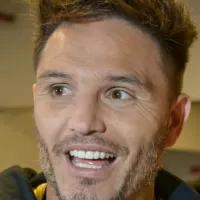
3 days ago Pedro Pascal and Rafael Olarra spotted linking arms in New York recently - Pictures
Popular

Jesse Jackson is an American civil rights activist politician and...
Randall Adam Fine is an American politician a Republican who...

Pam Bondi is an American attorney lobbyist and politician currently...

Barack Obama the th U S President - was the...

Ken Paxton is an American politician and lawyer serving as...

Bernie Sanders is a prominent American politician currently serving as...
